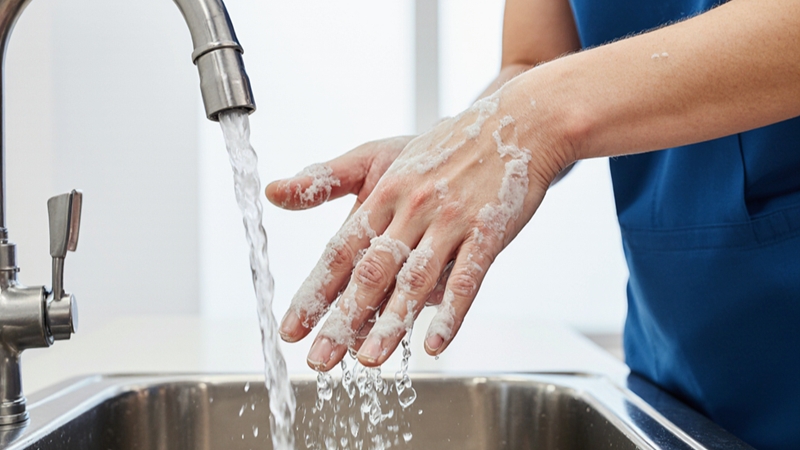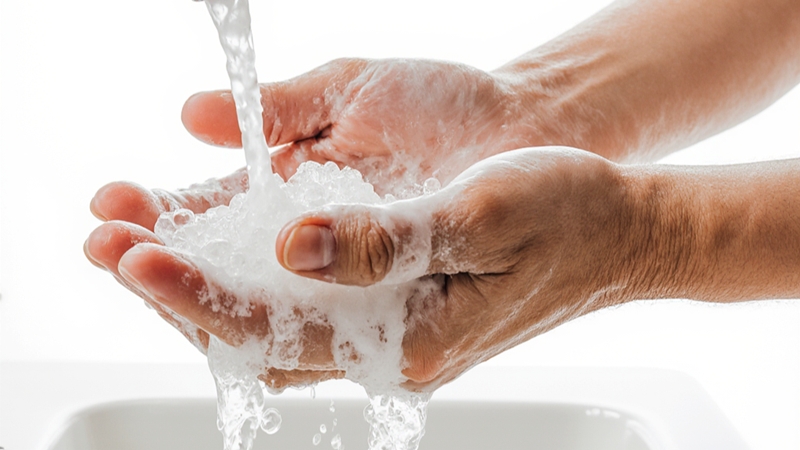Uncategorized
The Most Effective Hand Hygiene Practices for Refugees
Introduction
In refugee camps and temporary settlements, maintaining proper hygiene can be a serious challenge. Limited access to clean water, soap, and sanitation facilities increases the risk of infectious diseases. For refugees—many of whom live in crowded environments—hand hygiene is one of the simplest yet most powerful ways to protect health and prevent outbreaks.
This article explores the most effective hand hygiene practices for refugees, explaining why clean hands are essential and how people can maintain hygiene even in difficult living conditions.
Why Hand Hygiene Matters for Refugees
Refugees often live in environments where diseases can spread easily due to close contact, limited resources, and poor sanitation. Common illnesses such as diarrhea, respiratory infections, and skin diseases can spread quickly when hands are not properly cleaned.
Practicing good hand hygiene helps refugees:
- Prevent the spread of bacteria and viruses.
- Protect children and the elderly, who are more vulnerable to infections.
- Reduce healthcare costs and improve community well-being.
- Maintain dignity and comfort in daily life.
Even simple habits—like washing hands regularly—can have a powerful impact on health in refugee communities.
Key Moments to Wash Hands
Knowing when to wash hands is as important as how to wash them. Refugees should try to clean their hands at these critical times:
- Before eating or preparing food
- After using the toilet
- After cleaning a child or helping someone sick
- After handling garbage or dirty items
- After touching animals or their waste
- Whenever hands look visibly dirty
These moments are the highest risk times for spreading germs. Creating small routines around these moments helps make hygiene a regular habit.
The Correct Way to Wash Hands
When water and soap are available, refugees should wash their hands properly to ensure all germs are removed. The World Health Organization (WHO) recommends the following simple steps:
- Wet hands with clean, running water (if possible).
- Apply soap and rub hands together to create foam.
- Scrub all parts of the hands—palms, backs, between fingers, and under nails—for at least 20 seconds.
- Rinse hands thoroughly under clean water.
- Dry hands using a clean towel, paper tissue, or by air-drying.
Even if water is limited, washing with small amounts of water and soap is still better than not washing at all.

When Water or Soap Is Not Available
Many refugees live in camps or shelters where clean water or soap is scarce. In such cases, alcohol-based hand sanitizers can be an effective alternative—especially when hands are not visibly dirty.
If sanitizers are unavailable, refugees can also:
- Use ash or sand as an emergency cleaning method. Although less effective than soap, it can help remove visible dirt and some germs.
- Create community washing stations, where small amounts of water and soap are shared efficiently among families.
- Reuse containers or bottles to make portable handwashing devices, such as the “tippy tap” system.
Humanitarian organizations can also help by providing hand hygiene kits that include soap, sanitizers, and clean water containers.
Building Hygiene Awareness Among Refugees
Education plays a vital role in maintaining hygiene. Refugees—especially children—should be taught why handwashing is important and how to do it correctly. Awareness programs can include:
- Posters and visual guides in local languages.
- Group training sessions and hygiene demonstrations.
- Encouraging community leaders to model good hygiene practices.
- Involving schools and local volunteers in spreading hygiene messages.
Simple, repeated education helps make hand hygiene a shared community habit rather than an individual task.
The Role of Aid Organizations and Volunteers
Organizations that support refugees, such as the UNHCR, Red Cross, and UNICEF, play a major role in promoting hygiene. Their efforts include:
- Installing clean water points and handwashing stations.
- Distributing soap and hygiene kits regularly.
- Providing education materials for both children and adults.
- Monitoring hygiene practices and improving access where needed.
Volunteers can also support by teaching hand hygiene, setting up washing areas, and encouraging participation through games and community events.
Overcoming Cultural and Environmental Challenges
In some refugee communities, cultural beliefs or lack of awareness may affect hygiene behavior. Some people might see handwashing as unnecessary or only important after eating. Education should therefore respect local traditions while gently explaining the health benefits of clean hands.
Environmental challenges, such as dry climates or polluted water sources, also make hygiene difficult. Refugees can adapt by:
- Using stored rainwater or filtered water for washing.
- Sharing soap and water resources fairly.
You can easily find more of our blogs on Sanixway blog section!

